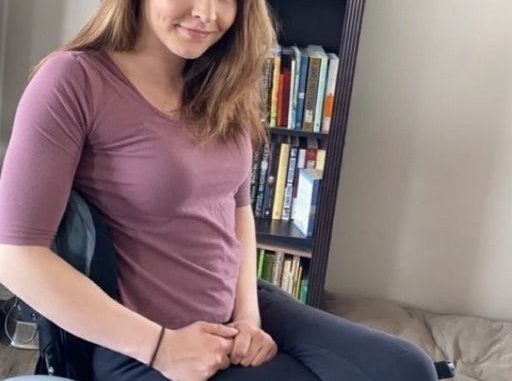
When doctors told me I’d never walk again, I didn’t cry—I just nodded, like they were giving me the weather forecast. I didn’t want pity or forced encouragement. I just needed space to grieve something I couldn’t fully explain.
So when they said I’d need part-time help, I refused. “I’ve got this,” I insisted. But I didn’t. Everyday tasks became battles. The kitchen was a disaster zone, showers were exhausting, and dropping anything felt like the end of the world.
Then Saara showed up.
She wasn’t what I imagined—young, confident, and refreshingly real. She didn’t treat me like I was fragile. She came in, asked for coffee, and acted like this was just another day on the job.
At first, I kept it professional. No small talk, just tasks. But her silly jokes chipped away at my walls, and I started saving articles I thought she’d like.
One day, I dropped a bowl and just broke down. Saara didn’t rush to fix it—she sat beside me and gently asked, “This isn’t really about the bowl, is it?”
That moment cracked something open in me.
I hadn’t wanted help, but Saara didn’t make it feel like I was a burden. She made it feel normal. Human. Like maybe I hadn’t lost everything after all.
Then she told me she might be moving—an amazing job opportunity at a clinic, three hours away. We sat in silence, her hands wrapped around a mug of tea.
“That’s great,” I said with a fake smile. Inside, I wanted to beg her to stay—but I stayed quiet.
I pretended I was fine. But loneliness started creeping in again.
Later, while sorting old photos, she paused at one from before the accident—me hiking.
“You look so alive here,” she said.
“I was,” I admitted. “Now getting to the mailbox is a win.”
She gently suggested I try an adaptive sports program. I asked why she even cared.
“Because I do,” she said. “And because I know you’re capable of more than you think.”
It took time for those words to sink in. I was scared of failing—but more afraid of doing nothing.
So she took me to the center. It wasn’t what I expected—it was full of energy and laughter.
I tried wheelchair basketball. I was terrible. But I laughed. And Saara cheered like I’d won a championship.
In the weeks that followed, I joined hand cycling, tried climbing, and started feeling proud again—for the first time in a long time.
Saara was there through it all—until the day she left.
That morning, we hugged goodbye. She wished me luck for my first official game. I said I’d be fine, but I couldn’t bring myself to say goodbye.
That night, we won the game. And when I looked up in the stands—there she was. She’d come back to watch.
Afterward, she found me and smiled. “See? I told you.”
“Thank you,” I whispered.
“Just promise me one thing,” she said. “Keep moving forward.”
And I did.
Sometimes the right people show up when we’re at our lowest—and help us rise before we even realize it. Their presence leaves a lasting imprint, even after they’re gone.
If this touched you, share it with someone who needs a reminder: healing often begins with connection. And moving forward doesn’t mean leaving everything behind—it means finding your strength again. ❤️
Leave a Reply